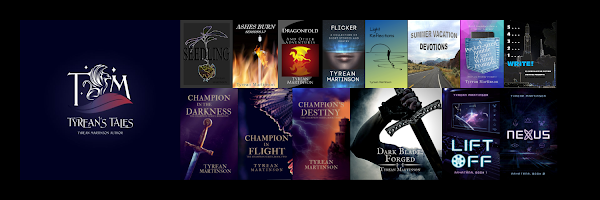Friendship is one of the most powerful forces in fantasy literature. It binds heroes together, gives them the strength to persevere, and often becomes the key to overcoming overwhelming darkness. From classic tales to modern epics, the relationships between characters shape their journeys just as much as any sword or spell. In my novel Dark Blade Forged and throughout The Dark Blade Trilogy, friendship plays a central role, proving that unity and loyalty can stand against even the greatest evils.
The Power of Friendship in Fantasy
Fantasy worlds are often fraught with danger—corrupt rulers, dark magic, and creatures of nightmare. Against such threats, friendship becomes more than just companionship; it’s a shield against despair and a source of hope. Strong bonds between characters elevate their struggles, making victories sweeter and losses more profound.
Take The Lord of the Rings as an example. Frodo may carry the burden of the One Ring, but without Samwise Gamgee, his journey would have ended long before Mount Doom. Sam’s unwavering loyalty and determination serve as a reminder that even in the darkest times, friendship can light the way.
More Than Just a Sidekick
Fantasy friendships often go beyond mere camaraderie—they shape the very destiny of the protagonists. In Brandon Sanderson’s The Stormlight Archive, Kaladin’s bond with his Bridge Four comrades transforms them from enslaved cannon fodder into an elite fighting force. His friendships drive his growth, proving that trust and brotherhood can triumph over suffering and despair.
Similarly, in The Dark Blade Trilogy, the friendships between the main characters form the heart of the story. Dan, the protagonist, wants to go it alone. Born to a noble family with a dark reputation—his parents are slavers—he longs to break free from their influence and forge his own path. He seeks solitude, believing that only by standing apart can he truly escape their shadow. But as he soon learns, overcoming his darkness requires more than isolation; it requires trust.
Dan’s journey forces him to rely on those around him—Prince Alex, once distant but now a friend, Farrald, a merchant’s son whose deep understanding balances Dan’s intensity, and his trainers, who push him beyond his limits. Even unexpected allies step in, showing him that strength does not come from standing alone but from standing together. His greatest challenge is not just wielding his dark blade but ensuring that it serves justice rather than vengeance. Without his friends to anchor him, he risks losing himself to the very darkness he fights against.
The Contrast Between Solitude and Friendship
Many fantasy heroes begin their journeys alone—either by choice or circumstance. Yet, as their stories unfold, they find allies who challenge them, support them, and ultimately change them for the better. The contrast between solitude and friendship highlights one of the genre’s most enduring themes: that true strength is not found in isolation, but in unity.
Geralt of Rivia from The Witcher series starts as a lone wolf, but over time, his relationships with characters like Yennefer and Jaskier add depth to his journey. Their companionship forces him to confront his own emotions and question his cynicism.
Friendship as the Key to Overcoming Darkness
At the heart of many fantasy tales lies the idea that darkness—whether external or internal—cannot be defeated alone. True heroism often requires trust, sacrifice, and the willingness to fight for those who stand beside you.
In Dark Blade Forged and in The Dark Blade Trilogy, as in so many great fantasy stories, friendship is not just an element of the plot—it is the foundation upon which victory is built. The heroes do not simply battle against a villain; they struggle to maintain their unity in the face of adversity. Their friendships give them strength when all else seems lost, proving that even in the darkest moments, the bonds between companions can light the way forward.
What Are Your Favorite Fantasy Friendships?
Friendship is a timeless theme, one that resonates deeply with readers. What are some of your favorite friendships in fantasy literature? Do you prefer stories where bonds grow slowly over time or ones where characters form instant, unbreakable connections? Let’s discuss in the comments!
You can find Dark Blade Forged at online stores and order it from in-person bookstores.

